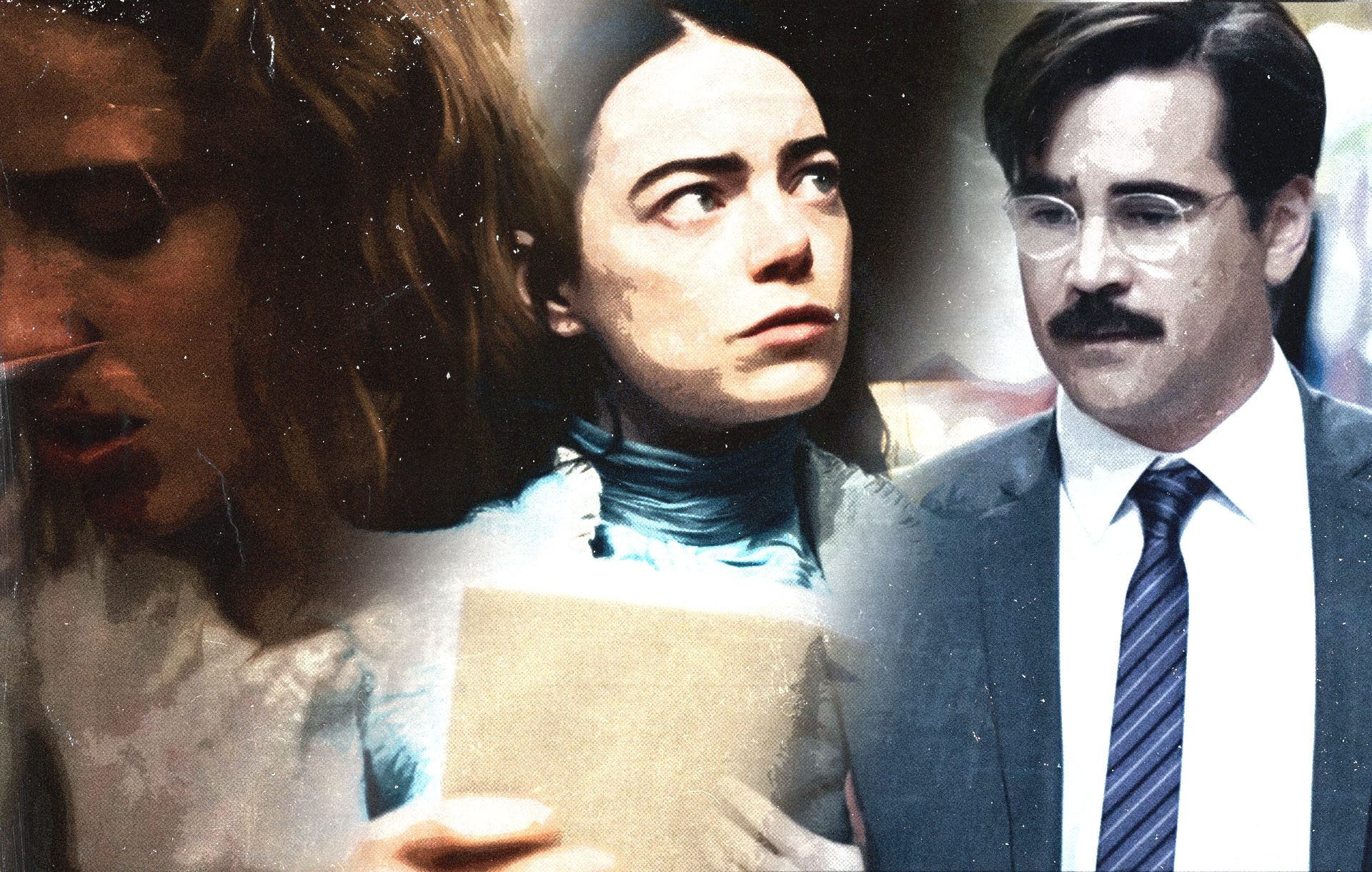Sex cults, cannibalism, and general debauchery. These are the outrageous and surreal subject matters that earned Yorgos Lanthimos a 4.5-minute standing ovation in Cannes on May 17, when he presented his latest movie Kinds of Kindness. Once again, his sheer audacity in exploring and reshaping every dark side of the human psyche put him among the most absurdist filmmakers of our time.
No wonder he gave birth to a postmodern film movement known as the Greek Weird Wave, which turned out to be a critical sensation in the early 2000s. At the time, Greece was a country profoundly affected by the 2008 global economic upheaval, and Lanthimos’ first works, such as Kinetta and Dogtooth, were greatly influenced by his heritage and social experience.
Since we do not want to spoil any WTF sequence of his new film before its US release this month, we would rather talk about how an artist’s voice can be so original, distinctive and outlandish that it gave birth to a new avant-garde. Therefore, here’s Yorgos Lanthimos’ main movies, ranked by the surreal, weird, and distinct.
Alps
Alps is arguably one of Lanthimos’ most underrated films. Despite winning the Best Screenplay award at Venice, it often flies under the radar. The film revolves around a group of individuals who assist people in their grieving process by temporarily impersonating the deceased, wearing their clothes and using their belongings. This intriguing premise immediately highlights the provocative nature of Lanthimos’ directorial vision.
Absurd in its premises and tragic in its developments, this film represents an evolution of Lanthimos’ style towards more thought-provoking works, bringing strong themes such as identity, alienation and mourning to the screen. As we delve into his filmography, we’ll discover that these elements are the hallmark traits of his cinematic work.
The Killing of a Sacred Deer
Lanthimos’s signature style, marked by its blend of dark humor, absurdity, and horror, is on full display in The Killing of a Sacred Deer. The film follows Dr. Steven Murphy (Colin Farrell), a successful American surgeon whose life begins to fall apart when a young boy named Martin (Barry Keoghan) enters his world, bringing along a mysterious and sinister force.
The story draws inspiration from Greek tragedy – specifically, the myth of Iphigenia – translating ancient themes of sacrifice and fate into a modern context. Characterized by a surgical cinematography and a haunting score, this work masterfully showcases a narrative that is both surreal and deeply unsettling until its tragic climax.
Poor Things
Lanthimos moved away from independent cinema and delivered what may be considered his magnum opus. This time, he opted to adapt a novel, adding a significant infusion of Mary Shelley’s Frankenstein. Emma Stone stars as Bella Baxter, a reanimated corpse of a grown-up woman with an infant’s mind. The film is centered on her exploration of various cities in a Victorian-esque era, in which she discovers her sexual voracity and some sort of childlike wonder towards life itself.
In a cinematic world, often conditioned by conventions and stereotypes, Yorgos Lanthimos stands out as a director who’s able to defy expectations and enchant viewers with his brilliance. Poor Things is no exception: it takes us on an extraordinary journey through fantasy, black humor, and a social reflection on what means to be a strong independent woman.
The Lobster
This is a film about singletons who have to check into a hotel and find love within 45 days, otherwise they will be permanently turned into animals. Right from the premise, we can understand that the director wants to freak us out, while trying to examine themes such as social rules and power structures.
Also, the way the Lanthimos approaches the theme of love and makes it both a necessity in order to be part of society and, in certain cases, a banned feeling that leads to being ostracized by said society is very interesting. Even in this case, the film is characterized by superficial exchanges, absurd social rules, and emotionally dry characters, who tend to break those rules and subvert social structures. The Lobster is just great: it’s like a mockery of power and a liberatory ode to weirdness at once.
Dogtooth
Dogtooth is arguably the manifesto of the aforementioned avant-garde. This provocative narrative delves into themes of family, education, and freedom, challenging viewers to re-examine their perceptions of the world. The film’s absurdist approach also obtained the Un Certain Regard award at the 62nd Cannes Film Festival and an Oscar nomination for Best Foreign Film in 2011.
Set in a secluded villa in Greece, Dogtooth tells the story of an authoritarian father who isolates his adult son and two daughters from the outside world. Through his manipulative methods, the father convinces them that their home is the entire world and that the outside world is a perilous place. And this fragile balance is then upset when the father, to satisfy his son’s sexual instincts, brings Christina into the house.
In Conclusion
As we noticed, Yorgos Lanthimos’ movies often feature surreal scenarios to prompt deeper reflections on societal constructs. In his cinematic universe, in fact, a voracious sexuality often emerges as a powerful and liberating force. In Dogtooth, this force gives the younger daughter a glimpse of freedom, while it empowers Bella to become a strong independent woman in Poor Things. For Lanthimos, sexuality equates to freedom, and his Cinema celebrates both the absurdity of existence and the quest for freedom.




